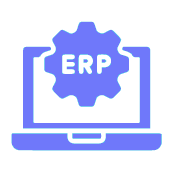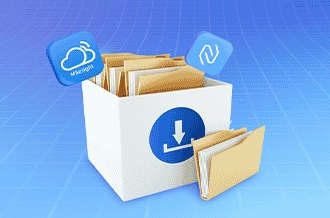Enterprise Resource Planning (ERP) refers to a type of software that organizations use to manage and integrate the crucial parts of their business. An ERP software system can integrate planning, purchasing inventory, sales, marketing, finance, human resources, and more into a single cohesive system.
Significance of ERP in Modern Business
In today’s fast-paced business environment, companies face challenges that demand efficiency and superior decision-making. Key benefits of implementing ERP systems include:
● Streamlined Operations: By automating processes and ensuring all departments work from the same data, organizations can reduce errors and improve turnaround times.
● Enhanced Data Accuracy: A centralized database allows real-time access to business information, leading to informed decision-making based on current metrics.
● Improved Compliance: ERP systems help ensure compliance with industry regulations through robust data management and security features.
LANA ERP Overview
● Accounting and Financial Management: Automating accounting tasks and providing insights into financial health.
● Inventory Management: Monitoring stock levels and enabling efficient order processing.
● Customer Relationship Management (CRM): Enhancing customer engagement and satisfaction through effective communication channels.
By employing LANA ERP, SMEs can achieve operational transparency, improve decision-making efficiency, and maintain flexibility in their business strategies, making it a powerful tool in the competitive landscape.
Overview of LANA ERP
LANA ERP is an advanced solution tailored for small and medium-sized enterprises (SMEs), integrated within the LanatechSoft Cloud Platform. This platform empowers businesses to streamline their operations and enhance productivity by leveraging both cloud-based and self-hosted offerings, ensuring that each enterprise can select the deployment method that best aligns with its operational requirements and compliance standards.
Key Features of LANA ERP
LANA ERP incorporates several key features that cater specifically to the needs of SMEs:
Integrated Business Functions: LANA ERP seamlessly merges critical business functions such as accounting, inventory management, and customer relationship management (CRM), enabling coherent and efficient workflows.
User-Friendly Interface: Its intuitive design allows employees to navigate the platform with ease, minimizing training time and enhancing user satisfaction.
Customizable Dashboards: Users can tailor their dashboards to focus on the metrics that matter most to them, promoting quick access to vital data for informed decision-making.
Benefits for SMEs
The benefits of LANA ERP for small and medium businesses are extensive:
Reduced IT Overhead: The cloud-based solution diminishes the resources required for maintenance and updates, allowing SMEs to concentrate on core business activities without worrying about the complexities of IT infrastructure.
Enhanced Operational Transparency: LANA ERP provides comprehensive insights and reporting capabilities that empower businesses to identify trends, make data-driven decisions, and promote transparency across operations.
Flexibility and Adaptability: Offering both cloud and self-hosted options, LANA ERP allows businesses to remain agile and adapt to changes in their specific industry or market, catering to unique compliance requirements when necessary.
With its robust features and direct alignment with the needs of SMEs, LANA ERP serves as an invaluable resource for those looking to drive efficiency and effectiveness in their daily operations.
Cloud-Based Solution
LANA ERP's cloud-based solution presents numerous advantages that cater specifically to the needs of small and medium-sized enterprises (SMEs). This deployment method simplifies various aspects of business operations, enabling organizations to focus on growth and efficiency without the burden of extensive IT overhead.
Key Benefits of Cloud-Based ERP
Reduced IT Overhead
● Lower Infrastructure Costs: By opting for a cloud-based solution, businesses eliminate the need for substantial investment in hardware and servers. LANA ERP manages the infrastructure, reducing overall costs associated with IT maintenance.
● Easy Maintenance and Support: Automatic updates and patches ensure that users always have access to the latest features and security improvements, minimizing disruptions and the need for full-time IT staff.
Automatic Updates
● Seamless Upgrades: Regular updates are rolled out automatically in the cloud environment, allowing companies to use the latest version of the software without manual intervention.
● Enhanced Features: With automatic updates, all users benefit from improvements and new functionalities simultaneously, fostering consistent use of the latest tools across the organization.
Scalability
● Adapt to Business Growth: A cloud-based solution allows SMEs to scale their resources quickly in response to changing needs. Whether it’s adding users, increasing storage, or expanding features, LANA ERP makes it easy to adjust capabilities without lengthy installation processes.
● Flexible Payment Options: Companies can often select subscription plans that best fit their current size and budget, allowing for financial flexibility as they grow.
Accessibility from Anywhere
● Remote Work Capabilities:LANA ERP’s cloud option enables employees to access the system from any location with an internet connection, facilitating remote work and access for traveling staff. This capability enhances collaboration and productivity.
● Multiple Device Compatibility: The platform is designed to work on various devices, such as laptops, tablets, and smartphones, allowing users to engage with the ERP system conveniently and effectively, regardless of their physical location.
Additional Advantages
● Enhanced Data Security: Leading cloud providers implement advanced security measures, such as encryption and regular backups, ensuring sensitive business data is protected against external threats.
● Faster Implementation: Cloud solutions tend to be quicker to deploy than self-hosted options, reducing the time from selection to utilization. This can have a direct impact on overall business productivity.
LANA ERP's cloud-based solution stands out as a compelling alternative for SMEs wanting to streamline operations, reduce costs, and enhance their organizational agility. By leveraging the cloud, businesses can minimize their IT burdens while ensuring they have the tools needed to innovate and compete effectively in today's rapidly evolving market.
Self-Hosted Solution
The self-hosted option for LANA ERP provides businesses with a robust alternative to the cloud-based deployment, catering specifically to the needs of small and medium-sized enterprises (SMEs) that prioritize control and compliance. This deployment method allows organizations to host the software on their own servers, providing a unique set of advantages that can be particularly appealing for certain types of enterprises.
Advantages of Self-Hosted ERP
Control Over Data
● Full Data Ownership: With a self-hosted ERP solution, businesses retain complete ownership and control over their data. This can be critically important for organizations that handle sensitive information or operate in industries with stringent data regulations.
● Custom Security Measures: Companies can implement their own security protocols and controls, tailoring their system to meet specific internal policies or external regulatory demands.
Compliance and Regulatory Requirements
● Enhanced Compliance: Industries such as healthcare, finance, and government often face stringent compliance standards. A self-hosted solution allows companies to ensure they meet these requirements by controlling data access and storage.
● Audit Trails: Self-hosted ERP systems can be configured to provide comprehensive audit trails, documenting all changes and transactions within the system to facilitate compliance reporting.
Customization and Integration
● Tailored Functionality: Organizations can customize the self-hosted solution to meet their specific needs more comprehensively than in a standardized cloud environment, enhancing workflow and operational efficiency.
● Seamless Integration: Integrating the ERP system with existing on-premises applications and legacy systems can be more straightforward, allowing for improved coordination across all business functions.
Reasons Larger Enterprises Might Prefer Self-Hosted Solutions
While LANA ERP is ideally designed for SMEs, larger enterprises may also find value in the self-hosted option for several reasons:
● Scalability and Performance: Large organizations often have significant data processing needs. A self-hosted environment allows them to scale their infrastructure according to their requirements, optimizing performance for numerous concurrent users.
● Dedicated Support: Larger companies may have IT teams capable of managing and maintaining the self-hosted system, providing a resource that can troubleshoot issues and ensure optimal operation.
● Long-Term Cost Efficiency: While initial setup costs may be higher, self-hosted solutions can result in lower long-term operational costs since businesses aren’t tied to ongoing subscription fees often associated with cloud solutions.
Considerations for Self-Hosted Deployment
While the self-hosted solution offers numerous benefits, organizations should also consider certain factors:
● Higher Initial Investment: The upfront costs for hardware, software, and setup can be significant compared to the lower barrier to entry for cloud solutions.
● Ongoing Maintenance and Upgrades: Companies must be prepared to manage their own software updates, security, and backup processes, requiring dedicated IT resources.
LANA ERP’s self-hosted solution presents an attractive option for businesses looking for enhanced control, compliance assurance, and the ability to fully customize their ERP system. By choosing self-hosting, organizations can align their ERP deployment with specific operational needs and regulatory requirements, ensuring that they are well-equipped to navigate the complexities of their respective industries.
Key Features of LANA ERP
LANA ERP offers an extensive suite of features that enhance various business functions, enabling small and medium-sized enterprises (SMEs) to operate more efficiently. These features are designed to integrate seamlessly, supporting vital operations such as accounting, procurement, inventory management, supply chain management, human resources, and customer relations.
Comprehensive Business Functionality
Accounting and Financial Management: LANA ERP automates vital accounting tasks, such as invoicing, expense tracking, and budgeting. Businesses can generate financial reports with real-time data analytics, assisting in financial forecasting and maintaining compliance.
Procurement Management: The platform streamlines the procurement process, allowing for efficient management of suppliers, purchase orders, and purchase requisitions. Businesses can track procurement costs and analyze supplier performance for better decision-making.
Inventory Management: Advanced inventory tracking ensures that businesses maintain optimal stock levels. LANA ERP provides real-time visibility into inventory status, enabling efficient reorder processes and reducing stockouts and excess inventory.
Supply Chain Optimization
● Supply Chain Management: LANA ERP enhances supply chain transparency by integrating supply chain processes. From procurement to delivery, businesses can monitor their supply chain effectively, ensuring timely communication with suppliers and customers.
Human Resource Management
● HR and Payroll Systems: The human resources module manages employee data, payroll processing, and performance evaluations. LANA ERP aids in recruitment processes and employee onboarding, ensuring compliance with labor regulations and maintaining employee satisfaction.
Customer Relations Enhancement
● Customer Relationship Management (CRM): The CRM feature enhances engagement with customers by providing tools for tracking customer interactions, feedback, and sales opportunities. With streamlined communication channels, companies can nurture relationships and improve customer satisfaction.
Decision-Making and Reporting
● Advanced Analytics and Reporting: LANA ERP includes powerful reporting tools that deliver insights into business performance through customizable dashboards. Users can analyze key performance indicators (KPIs) and generate reports tailored to their specific needs.
User Experience and Support
Intuitive User Interface: Designed for ease of use, LANA ERP minimizes the learning curve for employees, allowing for quick adaptation and effective use of the system.
Dedicated Customer Support: : LANA ERP provides comprehensive customer support, ensuring users receive timely assistance and training resources to maximize the benefits of the system.
With these key features, LANA ERP supports SMEs in achieving enhanced operational efficiency and decision-making capabilities, making it a vital tool for modern business management.
Benefits of Using LANA ERP for SMEs
Implementing LANA ERP provides small and medium-sized enterprises (SMEs) with numerous benefits that enhance transparency, efficiency, and decision-making capabilities. These advantages enable SMEs to thrive in a competitive marketplace while optimizing their operational processes.
Enhanced Operational Transparency
● Comprehensive Reporting: LANA ERP’s robust reporting tools offer real-time insights into all business operations, from sales to inventory levels. This transparency empowers SMEs to monitor performance effectively and identify areas for improvement.
● Full Visibility into Processes: With integrated business functions, decision-makers can view operations holistically, breaking down silos between departments. This visibility supports better collaboration and communication across the organization.
Improved Decision-Making Efficiency
● Data-Driven Insights: By centralizing data, LANA ERP allows businesses to generate accurate reports and analytics. Decision-makers can access critical metrics that inform strategic choices, minimizing reliance on guesswork.
● Responsive to Market Changes: LANA ERP equips organizations with the tools to adapt quickly to evolving market conditions. Whether adjusting inventory based on consumer demand or shifting resources to seize new opportunities, data-driven insights facilitate agile responses.
Operational Efficiency
● Automated Processes: Tasks such as inventory management, financial reporting, and customer relationship management can be automated, reducing the time spent on manual processes. This automation leads to fewer errors and boosts productivity across teams.
● Resource Optimization: With LANA ERP, SMEs can streamline their operations, enabling better allocation of resources and personnel. By minimizing waste, organizations improve profitability and cultivate a more efficient working environment.
Scalable Solutions for Growth
● Flexibility in Deployment Options: LANA ERP offers both cloud-based and self-hosted solutions, allowing businesses to select a model that best fits their specific needs. This flexibility facilitates growth without the constraints of a rigid ERP system.
● Customizable Features: As SMEs evolve, LANA ERP can adapt to changing requirements. Customizable dashboards and features empower organizations to focus on their most relevant data, enhancing usability and effectiveness.
By leveraging LANA ERP’s benefits, SMEs can achieve significant advancements in transparency, efficiency, and decision-making, positioning themselves for long-term success.
Conclusion
Integrating ERP into business operations is essential for small and medium-sized enterprises (SMEs) seeking to enhance efficiency and agility. LANA ERP offers flexible deployment options, allowing businesses to choose between cloud-based and self-hosted solutions, each tailored to meet unique operational needs.
Impact on Business Success
● Operational Efficiency: Streamlining processes reduces errors and fosters productivity.
● Enhanced Decision-Making: Real-time data insights support informed strategies.
● Regulatory Compliance: Both deployment options enable SMEs to address compliance requirements effectively.
Ultimately, choosing LANA ERP can significantly contribute to a company's overall success by enhancing transparency and supporting growth.




















